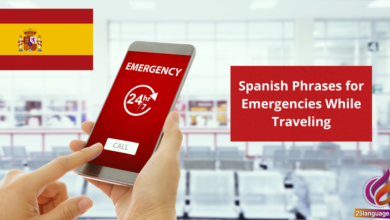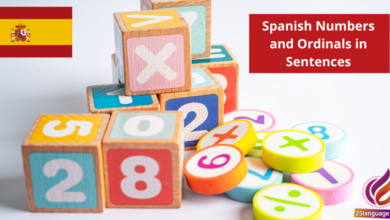The Difference Between “Conocer” and “Saber”

Understanding when too use “conocer” and “saber” is key to mastering Spanish. While both verbs mean “to know,” they serve different purposes and contexts that can change the meaning of your sentences. “Conocer” is about familiarity or acquaintance, whereas “saber” refers to knowledge or information. In this lesson, we’ll explore their unique uses through engaging examples and fun practice exercises, empowering you to express yourself more accurately in Spanish!
Understanding Conocer and Saber in Spanish Language Mastery
In Spanish, the verbs conocer and saber both translate to “to know” in English, but they are used in different contexts. Conocer is used to express familiarity with people, places, or things, while saber refers specifically to knowledge or information. Here are some key points to remember:
- Conocer: Used when you know someone or are familiar with a place.
- Saber: Used for facts, information, or how to do something.
Such as:
- conocer: Yo conozco a María. (I know María.)
- Saber: Yo sé que dos más dos son cuatro. (I know that two plus two equals four.)
| Spanish Example | rule | English translation |
|---|---|---|
| conozco la ciudad de Madrid. | Familiarity with a place | I know the city of Madrid. |
| Él sabe cómo cocinar. | Knowledge of how to do something | He knows how to cook. |
| Nosotros conocemos a tus padres. | Familiarity with people | We know your parents. |
| Ellos saben que la reunión es mañana. | Knowledge of information | They know that the meeting is tomorrow. |
distinguishing Two Fundamental Verbs: Conocer and Saber
In Spanish, both “conocer” and “saber” translate to “to know” in English, but they are used in different contexts. “conocer” is used when referring to familiarity with people, places, or things, while “saber” is used for knowledge of facts, information, or skills. Here are some key points to consider when distinguishing between the two:
-
- Conocer is often used for:
- Knowing a person: Conozco a María. (I know María.)
- Being familiar with a place: Conocemos la ciudad. (We know the city.)
- Having experience with a subject: Conocen el arte moderno. (They are familiar with modern art.)
- Saber is used for:
- Knowing facts or information: Sabemos que Madrid es la capital. (We know that Madrid is the capital.)
- Knowing how to do something: Sabe nadar. (He/She knows how to swim.)
- Expressing knowledge about a subject: No sé la respuesta. (I don’t know the answer.)
- Conocer is often used for:
| Spanish Example | Rule | English Translation |
|---|---|---|
| Conozco a Juan. | Familiarity with a person | I know Juan. |
| Sabemos la verdad. | Knowledge of a fact | We know the truth. |
| ¿Conoces este lugar? | Being familiar with a place | Do you know this place? |
| Sabe hablar francés. | knowledge of a skill | He/She knows how to speak french. |
Practical Insights into Conocer and Saber for Everyday Communication
In Spanish, the verbs conocer and saber both translate to “to know” in English, but they are used in different contexts. Conocer is used when talking about familiarity or acquaintance with people,places,or things. Such as:
-
-
- Conozco a María. (I know María.)
- Conozco Madrid. (I know Madrid.)
-
Conversely, saber is employed when referring to knowing facts, information, or how to do something. For instance:
-
-
- Sabemos la respuesta. (We know the answer.)
- Sé nadar. (I know how to swim.)
-
| Spanish Example | Verb Used | English Translation |
|---|---|---|
| Conozco a Juan. | Conocer | I know Juan. |
| Sé tocar la guitarra. | Saber | I know how to play the guitar. |
| ¿Conoces esta ciudad? | Conocer | Do you know this city? |
| Sabes qué hora es. | Saber | You know what time it is. |
examples and Applications of Conocer and Saber in Context
In Spanish, the verbs conocer and saber both translate to “to know” in English, but they are used in different contexts. Conocer is used when referring to being familiar with people, places, or things, whereas saber is used when talking about knowing facts, information, or how to do something. Here are some key points to remember:
-
-
- Conocer: used for familiarity or acquaintance.
- Saber: used for knowledge of facts or skills.
-
For example, you might say Conozco a María. (I know María), indicating familiarity with a person. In contrast,you would say Sabemos que Madrid es la capital de España. (We certainly know that Madrid is the capital of Spain), which refers to a fact. This distinction is crucial as it affects word choice in conversations. Below is a table to further illustrate these points:
| Spanish Example | Rule/Usage | English Translation |
|---|---|---|
| Conozco a mi vecino. | Familiarity with a person | I know my neighbor. |
| Sabes hablar español. | Knowing how to do something | You know how to speak Spanish. |
| Conocemos París. | Familiarity with a place | we know Paris. |
| Ellos saben la respuesta. | Knowing facts | They know the answer. |
Insights and Conclusions
¡Excelente trabajo hoy! Hemos explorado las diferencias esenciales entre los verbos “conocer” y “saber”, dos términos fundamentales en el aprendizaje del español. Recuerda que “conocer” se utiliza para referirse a la familiaridad con personas, lugares o cosas, mientras que “saber” se emplea para expresar conocimiento de hechos, información o habilidades.
Es normal sentirse un poco confundido al principio, pero no te preocupes; ¡la práctica es clave! Te animo a que uses estos verbos en tu vida diaria. Prueba a conversar con hablantes nativos,escribir frases en tu diario,o incluso crear pequeños diálogos en español. Cuanto más practiques,más confianza ganarás y más natural te resultará el uso de “conocer” y “saber”.
Recuerda,cada pequeño esfuerzo que hagas acerca tu aprendizaje y te acerca a la fluidez. ¡Continúa explorando el español con curiosidad y entusiasmo! ¡Hasta la próxima lección!





























